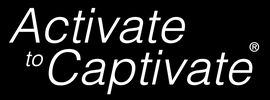|
No matter how prepared you are, surprises happen. That’s why it’s difficult when people feel ready for a presentation, but then something happens when they get up in front of an audience and their nerves take over. Thankfully, there are things people can do during their presentation prep work that can help them practice dealing with these unexpected variables.
1. Practice in different environments People usually practice presentations in a familiar environment that they have full control over. However, when you go to a conference or a new location, the entire presentation set-up changes. You have a different visual in front of you, people might be moving or shuffling their stuff around, and you are no longer inches from your laptop in a quiet room. That’s why I recommend practicing parts of your presentation in different environments. See if you can practice in a new conference room, at a different desk with people around, even practice the transitions in your presentation as you walk around the block. If you can get comfortable with new variables around you as you share your talk, you’ll be far more prepared for your presentation. 2. Practice without looking at your slides or a script Every presentation setup is different. I’ve given hybrid presentations where my laptop is in the back of the room while I’m in front of a conference table. I had no access to notes and I couldn’t see what slide was coming up next. Thankfully I was very familiar with my topic and I didn’t need to access any notes. However, you don’t want to be thrown off if something like this happens to you. That’s why I always make sure I practice the outline of my presentation without looking at my slides. If you know what idea comes next without a visual reminder, you’ll feel prepared with and without your slides. 3. Practice having something go wrong While you can’t prepare for every situation that occurs, you can control how you react. If you’re worried about how you’ll handle curve balls, I recommend practicing having something go wrong. Click ahead a few slides and pretend you had a tech glitch, close your laptop in the middle of your presentation and pretend the screen projector turned off, or practice with a friend and have them interrupt you. The more you train yourself to stay calm, breathe, and continue the narrative, the more prepared you’ll be for future events. While you can’t prepare for every variable, you can practice handling them. Rehearse in different environments, go through your outline without looking at your script, or have something go awry on purpose. That way you’ll feel much more prepared for your next presentation. Author: Bri McWhorter |
AuthorBri McWhorter is the Founder and CEO of Activate to Captivate. Categories
All
Videos
Archives
June 2024
|
Click to Contact
© 2014-2024 Activate to Captivate, LLC
All Rights Reserved
All Rights Reserved


 RSS Feed
RSS Feed
